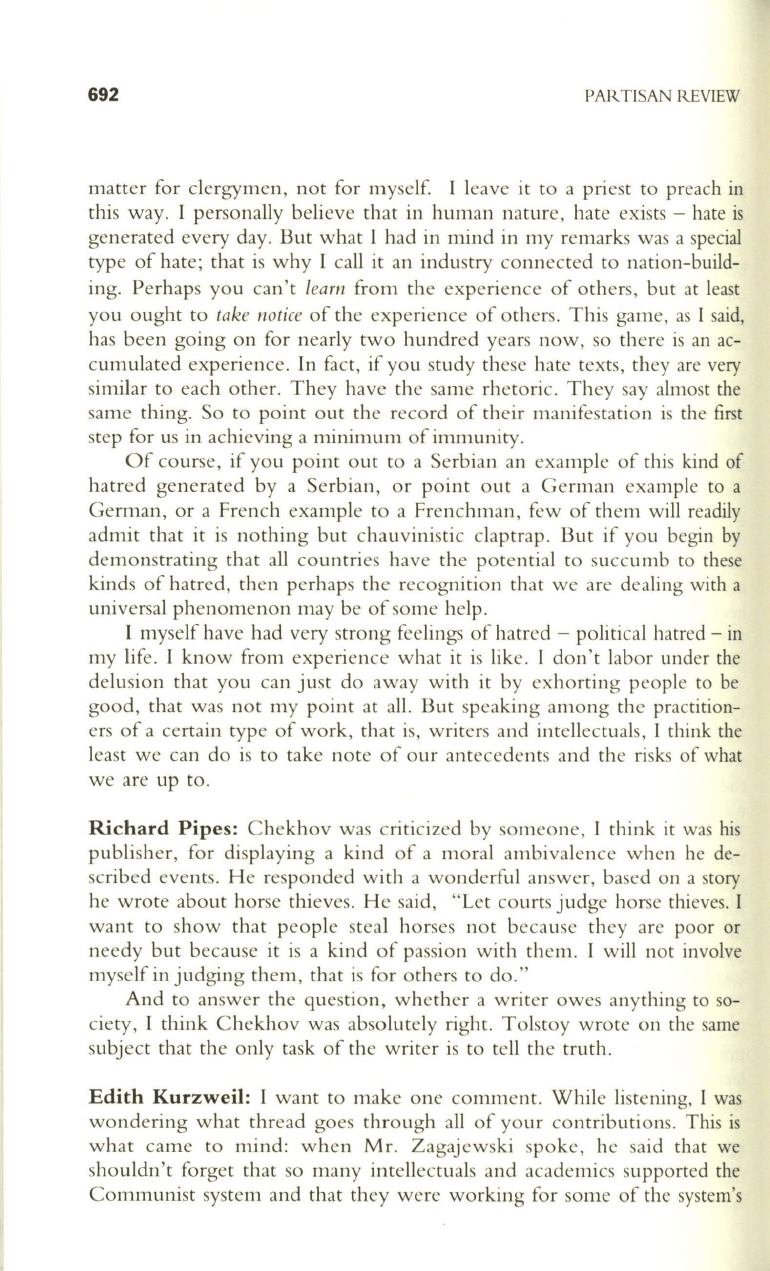
692
PARTISAN REVIEW
matter for clergymen, not for myself. I leave it to a priest to preach in
this way. I personally believe that in human nature, hate exists - hate is
generated every day. But what I had in mind in my remarks was a special
type of hate; that is why I call it an industry connected to nation-build–
ing. Perhaps you can't
learn
from the experience of others, but at least
you ought to
take notice
of the experience of others. This game, as I said,
has been going on for nearly two hundred years now, so there is an ac–
cumulated experience. In fact, if you study these hate texts, they are very
similar to each other. They have the same rhetoric. They say almost the
same thing. So to point out the record of their manifestation is the first
step for us in achieving a minimum of immunity.
Of course, if you point out to a Serbian an example of this kind of
hatred generated by a Serbian, or point out a German example to a
German, or a French example
to
a Frenchman, few of them will readily
admit that it is nothing but chauvinistic claptrap . But if you begin by
demonstrating that all countries have the potential to succumb to these
kinds of hatred, then perhaps the recognition that we are dealing with a
universal phenomenon may be of some help.
I myself have had very strong feelings of hatred - political hatred - in
my life. I know from experience what it is like. I don't labor under the
delusion that you can just do away w ith it by exhorting people to be
good, that was not my point at all. But speaking among the practition–
ers of a certain type of work, that is, writers and intellectuals, I think the
least we can do is to take note of our antecedents and the risks of what
we are up to.
Richard Pipes:
Chekhov was criticized by someone, I think it was his
publisher, for displaying a kind of a moral ambivalence when he de–
scribed events. He responded with a wonderful answer, based on a story
he wrote about horse thieves. He said, "Let courts judge horse thieves. I
want to show that people steal horses not because they are poor or
needy but because it is a kind of passion with them. I will not involve
myself in judging them, that is for others to do."
And to answer the question, whether a writer owes anything to so–
ciety, I think Chekhov was absolutely right. Tolstoy wrote on the same
subject that the only task of the writer is to tell the truth.
Edith Kurzwei1: I
want to make one comment. While listening, I was
wondering what thread goes through all of your contributions. This is
what came to mind: when Mr. Zagajewski spoke, he said that we
shouldn' t forget that so many intellectuals and academics supported the
Communist system and that they were working for some of the system's


